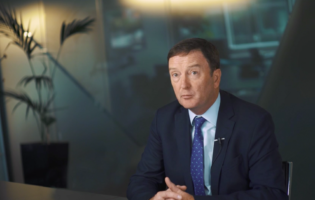Investment Outlook - Market Update

The third quarter saw a continuation of the strong positive returns experienced during the first half of the year. A material change in market focus saw a switch of H1 investor worries from fears of inflation and higher for longer interest rates to fears of economic recession and an associated narrative of expectations for rate cuts during the third quarter. This provided a strong background for bond market returns as well as a rotation towards more value from growth industries across equity markets.
Looking to the final quarter of 2024, we highlight a myriad of mainly economic and geo-political topics that investors will be keenly monitoring. Economically, while the consensus remains strongly for a soft-landing in the US economy, survey after survey highlights somewhat paradoxically that their greatest fear is that of a US recession. Inflation is now deemed to be yesterday’s concern with the consensus now expecting a continued lowering of interest rates across all major economies, with Japan being the only exception. Geopolitically the forthcoming US Presidential election as well as the ongoing war in the Middle East are also events that could move markets into year end.
As I highlighted at the mid-year outlook, it is somewhat ironic that equity markets are delivering strong returns and hitting new all-time highs in many cases at a time when we are asked more and more about risks by our clients, no-doubt spooked or concerned by news headlines. For the first half of the year, much of the market performance was driven by the exceptional performance of a small number of US AI focused technology names, while performance was further boosted as performance broadened out further across previously underperforming industries during the third quarter as already highlighted.
In terms of outlook, the strong consensus conviction is for a soft economic landing, lower inflation and a series of interest rate cuts over the next 12-18 months. On the basis that such events do occur as the year finalises and investors anticipate 2025, this strongly suggests an environment where the market rotation away from the expensive mega-cap technology names towards more attractive value and small-mid capitalisation stocks across market indices globally that began during Q3 should not just continue but accelerate and broaden. This is also consistent with the beginnings of the next economic and associated earnings cycles.
Asset class outlook:
Equities
As was the case during 2023, the market returns YTD for 2024 have exceeded earnings growth, and as a result, market valuations are now at an aggregate level trading above historic averages and equity markets in aggregate cannot be described as cheap. We continue to highlight, however, the major discrepancies in valuations across in particular the US equity market. The market is dominated by ‘have’s and have-not’s’ when it comes to valuation dispersion and performance over the past few years. But noteworthy that as the outlook expectations changed e.g. for interest rates during Q3, we have seen the beginning of a market rotation. While a beginning, it was far from convincing thus far and in fact quite defensive with sectors such as consumer staples and utilities being some of the strongest performers. Looking ahead, we expect the broadening to continue as attractively valued ‘have-not’ value or mid-cap come more into vogue, which we believe are supported by good fundamentals.
While the strong consensus is for a soft landing and a positive catalyst for rotation, we are also mindful of recession being a risk, but do argue that should a mild recession occur that valuations are such that for much of the stock-market that once a hard landing is avoided it should be a catalyst for a continued rotation and broadening of performance across the market, an environment that should suit good stock picking. At a regional level we continue to note that the North American equity market in aggregate looks the most expensive. In contrast, European and the strongly out of favour Emerging Market equity markets look much more attractively valued.
Bonds
Bonds as an asset class having experienced two difficult back-to-back years of performance during 2022 & 2023, struggled during the first half of 2024 but have performed well during the third quarter helped by lower inflation and expectations for continued interest rate cuts.
While the changed environment is helpful, we don’t envisage notably lower bond yields, believing that they are currently fairly valued rather than cheap. The possibility of a Republican victory in the US election combined with a reasonable chance of a ‘red sweep’ would also be negative for US bond markets as seen as inflationary..
Risk wise, we continue to monitor corporate bond markets for any signs of distress at a company or indeed sectoral level. We watch spreads that to date have shown very little if any signs of stress.
Disclaimers:
KBI Global Investors Ltd is regulated by the Central Bank of Ireland. KBI Global Investors (North America) Ltd is a registered investment adviser with the SEC and regulated by the Central Bank of Ireland. Registration does not imply a certain level of skill or training. KBI Global Investors (North America) Ltd is a wholly-owned subsidiary of KBI Global Investors Ltd. ‘KBI Global Investors’ or ‘KBIGI’ refer to KBI Global Investors Ltd and KBI Global Investors (North America) Ltd.
Under MiFID II this is deemed marketing material and should not be regarded as investment research. This material is provided for informational purposes only and does not constitute an offer to sell or the solicitation of an offer to purchase any security, product or service including any group trust or fund managed by KBI Global Investors. The information contained herein does not set forth all of the risks associated with this strategy, and is qualified in its entirety by, and subject to, the information contained in other applicable disclosure documents relating to such a strategy. KBI Global Investors’ investment products, like all investments, involve the risk of loss and may not be suitable for all investors, especially those who are unable to sustain a loss of their investment.
PAST PERFORMANCE IS NOT NECESSARILY INDICATIVE OF FUTURE RESULTS.
This introductory material may not be reproduced or distributed, in whole or in part, without the express prior written consent of KBI Global Investors. The information contained in this introductory material has not been filed with, reviewed by or approved by any regulatory authority or self-regulatory authority and recipients are advised to consult with their own independent advisors, including tax advisors, regarding the products and services described therein. The views expressed are those of KBI Global Investors and should not be construed as investment advice. We do not represent that this information is accurate or complete and it should not be relied upon as such. Opinions expressed herein are subject to change without notice. The products mentioned in this Document may not be eligible for sale in some states or countries, nor suitable for all types of investors. Past performance may not be a reliable guide to future performance and the value of investments may fall as well as rise. Investments denominated in foreign currencies are subject to changes in exchange rates that may have an adverse effect on the value, price or income of the product. Income generated from an investment may fluctuate in accordance with market conditions and taxation arrangements. In some tables and charts, due to rounding, the sum of the individual components may not appear to be equal to the stated total(s). Additional information will be provided upon request. Performance for periods of more than 1 year is annualized. Gross results shown do not show the deduction of investment management fees. A client’s actual return will be reduced by the management fees and any other expenses which may be incurred in the management of an investment account. For example, a €1,000,000 investment with an assumed annual return of 5% with a management fee of 0.85% would accumulate €8,925 in fees during the first year, €48,444 in fees over five years and €107,690 in fees over ten years.




